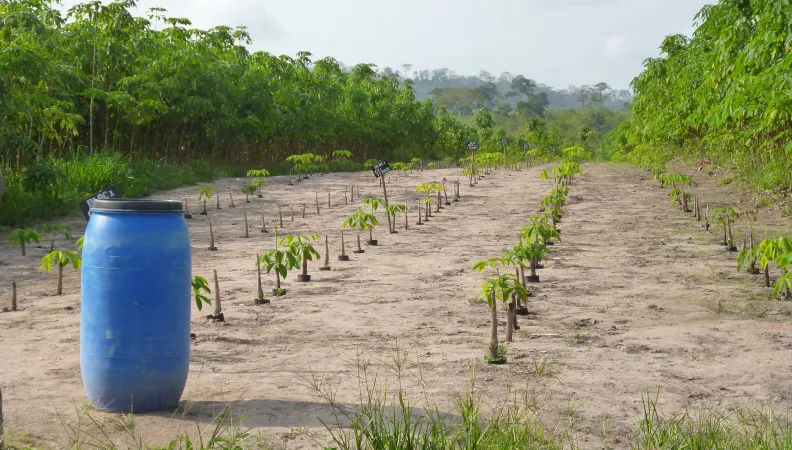Share the page
Contributing to the development of agroecology in dry areas (AVACLIM)
Project


-
Project start date
-
Status
In progress
-
Estimated date of project termination
-
-
Project financing date
-
-
Financing duration
-
3,5 Years
-
Type of program
-
FFEM
-
Global financing amount
-
3 144 570 €
-
FFEM financing amount
-
1 100 000 €
-
Project lead member institution(s)
-
AFD
-
Country and region
-
Multi-country
-
Location
-
Afrique du Sud - Brésil- Burkina Faso - Ethiopie - Inde - Maroc - Sénégal
-
Type of financing
-
Grant
-
Partners
-
CARI, FAO, IRD
-
Beneficiaries
-
Centre d’Actions et de Réalisations Internationales (CARI)
-
Type of beneficiary
-
NGO, Foundation


Faced with the challenge of climate change, agroecology offers a solution - especially in dry areas - but remains very poorly funded and rarely receives public authority support. To contribute to its development the FFEM is supporting the project “Agroecology, a route to climate change adaptation in dry areas”.
Context
Drought has intensified over the 21st century in arid and semi-arid climate zones. Faced with the climate and food challenges that this brings, agroecology appears to be a valid response to the problem of agricultural adaptation in dry areas. However, those involved are poorly coordinated, their experiences little documented and the public authorities seldom in favour. To tackle these constraints, the Centre d’actions et de réalisations internationales (CARI) is leading the project “Agroecology, a route to climate change adaptation in dry areas” (AVACLIM) in five countries across Africa plus India and Brazil.The FFEM is supporting this project to promote agroecology as a tool for adapting to climate change.
Description
The project has four elements:
- Building on the capabilities of those involved in agroecology to promote group discussion and experience-sharing internationally, while supporting the implementation of specific monitoring tools.
- Evaluating agroecology initiatives across fourteen regions, in order to measure the results and impacts of agroecological practices, and identify the key factors in their development and success.
- Creating and implementing science-based advocacy to encourage public policies that favour agroecology.
- Rolling-out monitoring, capitalisation and communication activities to share the results obtained and highlight the scientific results obtained from the evaluations.
Outcomes
- Skills enhancement for everyone involved, promoting agroecology by building a database.
- Capturing recommendations and facilitating experience-sharing between those involved in agroecology (NGO project partners, others) so that these practices are widely publicised.
- Building a convincing case for the relevance of agroecology when facing climate change in dry areas, targeted at national and international public bodies.
- Raising awareness of the project and the results obtained amongst the different audiences: those involved in development, farmers and the wider public.
- The knowledge generated is leveraged for and by the scientific community.
Innovative & exemplary character
Confronted by the dominant agricultural model, agroecology is of itself an innovation. However, the project also innovates in its method of operating, relying on a novel approach to consolidate and share the existing dynamics within agroecology amongst different actors and multiple countries by building a resource network. While the practices and results are to be analysed, science-based advocacy actions will be put in place to encourage public policies favourable to agroecology. The AVACLIM project is thus positioning itself as a “privileged intermediary” on the topic, and will encourage the partners to use communication tools to enable collaborative working which can be replicated at national or international level. Such reproducibility is further assured by scientific monitoring and evaluation of the various activities.
Find out the results of our partner FAO's project Evaluation
Sustainable Development Goals
ODD12 Responsible consumption and production

ODD13 Climate action



